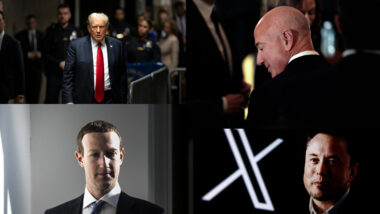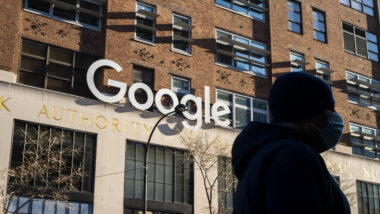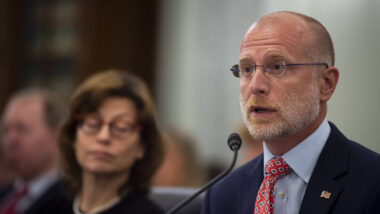Lawrence Lessig argumentiert im Wall Street Journal, wie durch eine restriktive Urheberrechtsgesetzgebung Kreativität zerstört und die Netzgeneration kriminalisiert wird: In Defense of Piracy.
We are in the middle of something of a war here — what some call „the copyright wars“; what the late Jack Valenti called his own „terrorist war,“ where the „terrorists“ are apparently our kids. But if I asked you to shut your eyes and think about these „copyright wars,“ your mind would not likely run to artists like Girl Talk or creators like Stephanie Lenz. Peer-to-peer file sharing is the enemy in the „copyright wars.“ Kids „stealing“ stuff with a computer is the target. The war is not about new forms of creativity, not about artists making new art. Yet every war has its collateral damage. These creators are this war’s collateral damage. The extreme of regulation that copyright law has become makes it difficult, sometimes impossible, for a wide range of creativity that any free society — if it thought about it for just a second — would allow to exist, legally. […]This war must end. It is time we recognize that we can’t kill this creativity. We can only criminalize it. We can’t stop our kids from using these tools to create, or make them passive. We can only drive it underground, or make them „pirates.“ And the question we as a society must focus on is whether this is any good. Our kids live in an age of prohibition, where more and more of what seems to them to be ordinary behavior is against the law. They recognize it as against the law. They see themselves as „criminals.“ They begin to get used to the idea.
Er fordert konkret fünf Massnahmen für eine Reform des Copyrights, die ich alle so unterschreiben kann:
Deregulate amateur remix. Nicht-kommerzielle Remixe (MashUps) müssen frei von Regulation sein, wie im 20. Jahrhundert, als man Kollagen aus Zeitungsschnipsel machte.
Deregulate „the copy“. In Zeiten, wo die digitale Nutzung eines kreativen Werkes automatisch eine Kopie ist, muss die „Kopie“ neu definiert werden. Alles, was Computer machen, nämlich Bits & Bytes verarbeiten, erzeugt Kopien. Das ist was anderes als früher in der physischen Welt.
Simplify. Copyright / Urheberrecht ist auf grosse Firmen mit Anwälten ausgelegt. Kaum ein Mensch versteht noch die vielen Regelungen, aber jeder Mensch mit einem Computer ist davon betroffen. Daher muss die Gesetzgebung vereinfacht und an die gesellschaftlichen Realitäten angepasst werden.
Restore efficiency. Das Copyright-System ist total ineffizient. Es kann effizienter gestaltet werden, z.B. durch eine Verkürzung der Laufzeiten auf 14 Jahre mit einer Option auf Verlängerung.
Decriminalize Gen-X – Filesharing entkriminalisieren.




Vielen ist Lessig nicht radikal genug. Was Lessig hier sagt unterschreibe ich auch sofort. Bravo!